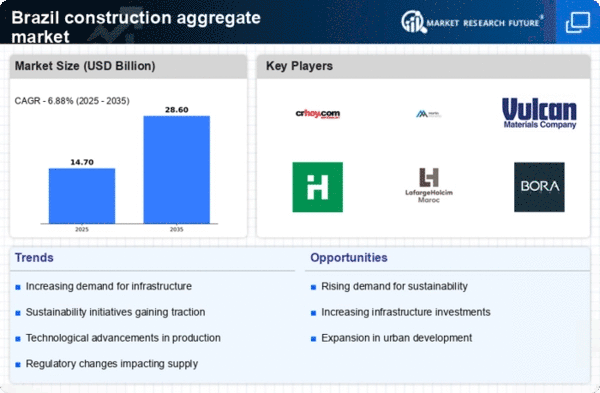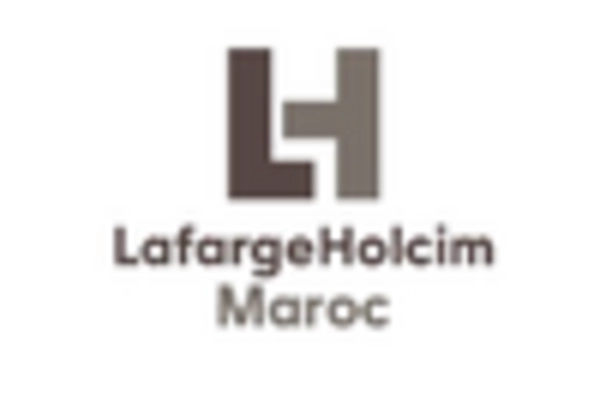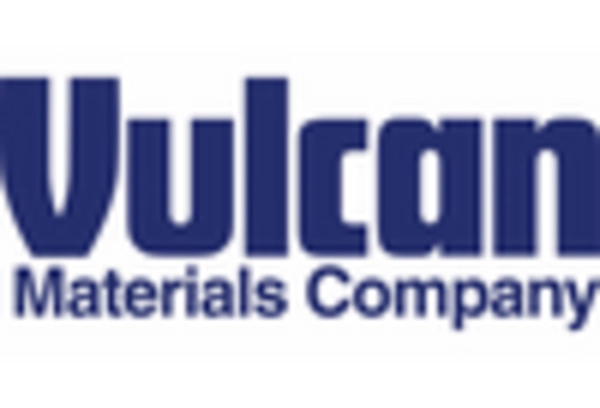Rising Construction Activities
The construction sector in Brazil is witnessing a resurgence, driven by both public and private investments. The construction aggregate market is experiencing heightened demand as new projects, including residential complexes, commercial buildings, and public infrastructure, are underway. According to the Brazilian Chamber of Construction Industry, the sector is expected to grow by approximately 4% annually over the next five years. This growth is likely to result in increased consumption of aggregates, as they are fundamental components in construction. The construction aggregate market must prepare for this growth by ensuring that supply chains are robust and capable of meeting the rising demand for quality materials.
Regulatory Framework and Standards
The regulatory environment in Brazil plays a pivotal role in shaping the construction aggregate market. Stricter regulations regarding environmental sustainability and quality standards are being implemented, which could influence the sourcing and production of aggregates. Compliance with these regulations is essential for companies operating in the construction aggregate market, as non-compliance may lead to penalties and project delays. Moreover, adherence to quality standards ensures that the aggregates used in construction meet safety and durability requirements. As the industry adapts to these regulations, it may also drive innovation in sourcing and processing methods, potentially leading to more sustainable practices within the construction aggregate market.
Urbanization and Population Growth
The rapid urbanization in Brazil is a crucial driver for the construction aggregate market. As cities expand, the demand for housing, infrastructure, and commercial spaces increases significantly. The Brazilian Institute of Geography and Statistics indicates that urban areas are projected to house over 85% of the population by 2030. This urban influx necessitates substantial quantities of construction aggregates, as they are essential for concrete and asphalt production. Furthermore, the construction aggregate market is likely to experience a surge in demand due to ongoing residential and commercial projects aimed at accommodating this growing population. The construction aggregate market must adapt to these trends by ensuring a steady supply of materials to meet the escalating needs of urban development.
Infrastructure Development Programs
Brazil's government has initiated various infrastructure development programs aimed at enhancing transportation networks, energy production, and urban facilities. These programs are expected to inject billions of $ into the economy, thereby stimulating the construction aggregate market. For instance, the National Logistics Plan outlines significant investments in road and rail infrastructure, which will require vast amounts of aggregates for construction. The construction aggregate market stands to benefit from these initiatives, as they will likely lead to increased demand for aggregates in both public and private sector projects. Additionally, the focus on improving infrastructure is anticipated to create job opportunities, further driving the need for construction materials.
Technological Innovations in Production
Technological advancements in the production of construction aggregates are transforming the market landscape in Brazil. Innovations such as automated processing plants and advanced crushing techniques are enhancing efficiency and reducing costs. The construction aggregate market is likely to benefit from these technologies, as they can lead to higher quality products and lower environmental impact. Furthermore, the integration of data analytics and machine learning in production processes may optimize resource allocation and improve supply chain management. As companies adopt these technologies, they may gain a competitive edge, positioning themselves favorably within the evolving construction aggregate market.

















